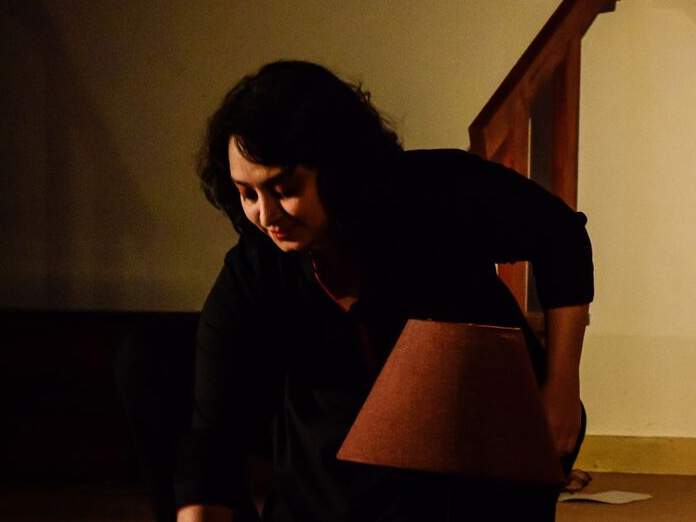Live
- Chetna remains trapped in borewell even after 96 hours
- ‘A Maruti 800 heart’: SPG’s Asim praises Singh’s simplicity
- A visionary leader who transformed nation’s economy
- 'As PM, I cannot let any Indian go without food'
- NIN scientist G Bhanuprakash elected as a Fellow of NAAS
- HMWSSB MD orders quick resolution of water issues
- New survey to address land rows across TG on the anvil
- key demands presented to Bandi
- Protest Enters 12th Day: Advocates continue to boycott duties
- Army Gurukul College crosses district border
Just In

Anuja Gholsakar, is a theatre artist, writer and director based in Bengaluru Through her theatre company, Drama Queen, she is pioneering a unique form of documentary theatre in India Her highly acclaimed play, Lady Anandi, captivated the audience of Hyderabad at the recently concluded Krishnakriti Art Festival
Anuja Gholsakar, is a theatre artist, writer and director based in Bengaluru. Through her theatre company, Drama Queen, she is pioneering a unique form of documentary theatre in India. Her highly acclaimed play, ‘Lady Anandi’, captivated the audience of Hyderabad at the recently concluded Krishnakriti Art Festival.
Excerpts from an interview:
Documentary theatre is not something we often hear about it. What is it and how different it is from a regular theatre?
Documentary theatre works with the archives, accessing the historical documents. It can be performed by both actors and non-actors. And more importantly, the audience is not passive, unlike the ones in the traditional theatre. It is hyper-realistic, in the sense that it has no pretence of acting. That makes it more proactive, it kind of wakes up the audience from slumber and makes them be part of what’s happening on the stage.
In ‘Lady Anandi’, there’s a scene where you, as a struggling actor Anuja, ask the audience if they find you, woman, enough. How did the audience in India respond to that?
Yes. I ask a series of questions to the audience about my waist size, my voice if I’m responding to male gaze well, and finally, pointing to one man in the audience, I ask: “Am I woman enough for you?” At the Kerala Film Festival, the audience responded in negation to first three questions, but there was a stunned silence for the final one.
In Hyderabad, a gentleman didn’t say it aloud but nodded his head in affirmation. And out of the 50 shows done so far, only in a performance in Dharmashala, did I find a man saying “yes”. By asking these questions, I’m putting myself as well the audience in a vulnerable space, which gives us a chance to ponder about our ideas of gender, socio-cultural biases and more.
In your performance, ‘The Reading Room’, the audience becomes the performers. In a room of 10 strangers, one gets to read a personal letter of another. What was the motive for such an experiment?
In ‘Lady Anandi’, I was activating an archive. I researched into how my great grandfather acted on the stage, through archival evidence, whereas in the ‘The Reading Room’, I collect documents - though it is not mandatory, I request the performers to leave the letters with me. This is possibly the purest form of documentary theatre because the audience themselves become performers. The letters serve as the script.
Most of your work seems to be about personal histories and nudging people to tell their stories. Why and how is this important, especially in the times we live in?
It is important that we have a safe space where our emotions can come out. The audience may find it therapeutic, but isn’t art therapy?
How do you see the current state of documentary theatre in India? What are the challenges it faces here?
I feel it is quite a liberating form of theatre, especially as an actor. You can be you, and no need to be somebody else. There is no hierarchy involved. It gives a platform for unheard voices. In the Serendipity Art Festival, we did a walk back show in a market. The performances are for the public, not for the elite.
I might have faced challenges when I began with this form, but me being a person who keeps pushing forward and doesn’t accept a “No” easily, has helped to overcome those.
What are your upcoming projects?
There’s a quite a bit of work going on, but currently under the wraps. Currently, busy with my workshop “Startling Realities” in Mumbai and Bangalore.
- Purnima Tammireddy

© 2024 Hyderabad Media House Limited/The Hans India. All rights reserved. Powered by hocalwire.com







